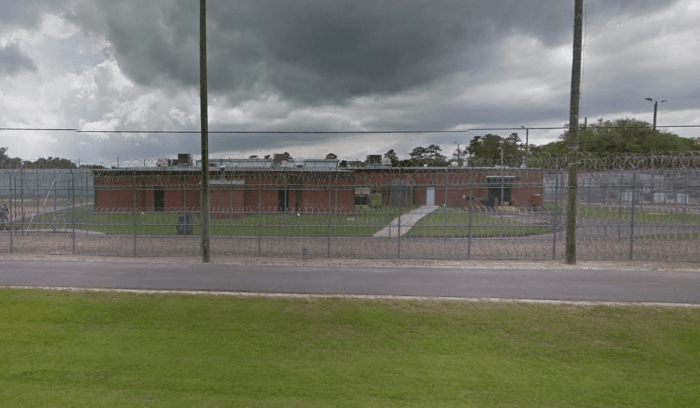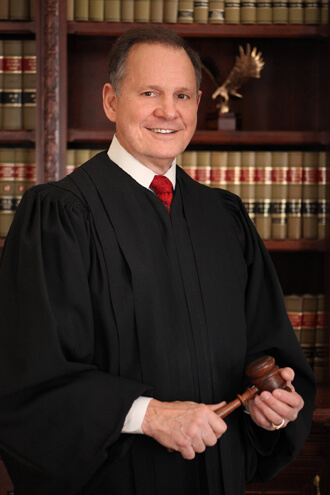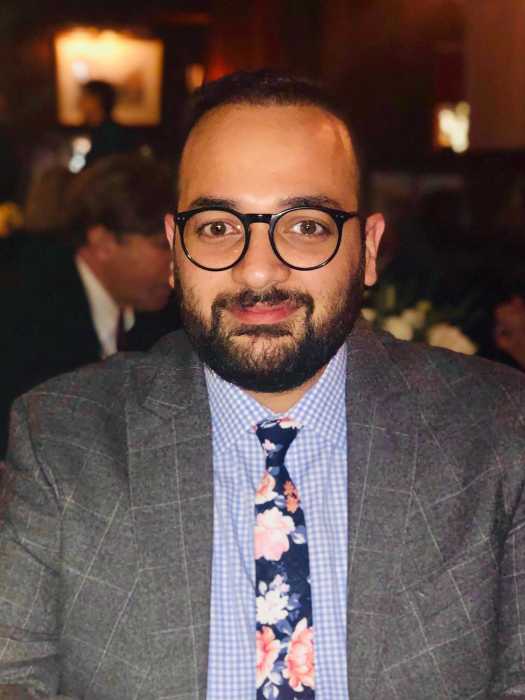The Supreme Court’s December 5 hearing in 303 Creative LLC v. Elenis — where a Colorado website designer asserts a First Amendment free speech right to refuse to create wedding websites for same-sex couples — starkly illustrated how much of a legal and cultural shadow Donald Trump’s presidency continues to cast over our community’s well-being.
But last week also saw several promising developments, including final congressional action on a measure protecting marriage equality. The most powerful advance, however, came out of Georgia in that state’s US Senate runoff.
Under Colorado law, public accommodations such as 303 Creative — a business that holds itself out as open to the general public — cannot discriminate in providing services on the basis of protected categories, including sexual orientation and gender identity. Defending its public accommodations law, the State of Colorado maintains that denying same-sex couples website design services is sexual orientation discrimination because the same services would be offered to different-sex couples. Lorie Smith, 303 Creative’s owner, in contrast, contends that her website design work is “speech,” protected by the First Amendment, and that the state cannot compel her to engage in speech contrary to her belief that marriage is rightly the union of one man and one woman.
Smith’s case, instigated by the anti-LGBTQ law group Alliance Defending Freedom (ADF), is disingenuous in several respects. The first is the idea that putting together a website on behalf of a commercial client is somehow “speech,” the content of which could be attributed to the technician executing the task. The case’s other facetious aspect is that Smith, to date, has not designed any wedding websites, and is instead looking for preemptive approval for giving public notice she will not do so for same-sex couples. Courts are supposed to decide real disputes, but so far there have been no complaints from aggrieved same-sex couples nor any enforcement actions by the State of Colorado.
Expert analysis of the Supreme Court arguments, however, uniformly predict that Smith will prevail before a bench with a 6-3 conservative majority that includes three Trump appointees. At msnbc.com, Chris Geidner, a gay legal analyst who writes the Law Dork Substack column, predicted a 6-3 vote in the case and pointed out how Amy Coney Barrett and Neil Gorsuch — both Trump’s appointees — each jumped in to help the ADF attorney when she lost her footing during the hearing.
Like other analysts, Geidner predicted that the only real question is how broadly applicable Smith’s victory will be. The court could craft a narrow approach that manages to credit her argument that designing websites is protected “speech” without granting widespread license to evade public accommodations law by simply pointing to the First Amendment. Or, public accommodations nondiscrimination law could be gutted — with devastating consequences not only for the LGBTQ community, but for protections in categories like race and gender, as well.
The 303 Creative case arrives at a daunting political and cultural moment for the LGBTQ community. Red states around the country continue their war on transgender healthcare and on trans youth. Ron DeSantis’ Don’t Say Gay law in Florida has encouraged vitriolic lies about the “grooming” of youth, and, as the Miami Herald reports, that state’s Department of Education is now targeting at least 10 large school districts over their policies protecting LGBTQ students. The actions of politicians, in turn, are encouraging vigilantism, with Proud Boy contingents turning up at drag queen story hours and drag performance events.
Against this background, Congress’ final approval last week of the Respect for Marriage Act is, of course, an encouraging counterpoint — especially given the support of 12 Republicans in the Senate and 39 in the House. We can’t forget, however, that this measure arose in response to Justice Clarence Thomas’ explicit threat, in his concurrence in the June abortion ruling, to revisit the 2015 Obergefell marriage equality victory. Taking up marriage equality this fall precluded any possibility that the Senate could move on the Equality Act, the latest version of a 50-year effort to enact comprehensive LGBTQ nondiscrimination protections. With Republicans taking control of the House in 2023, progress is now put off at least two more years.
As importantly, the “religious liberty” language the Senate Republicans demanded in return for supporting the marriage bill exempted not only clergy and religious congregations from participating in same-sex marriage solemnization and celebrations — as is appropriate — but also groups such as “faith-based social agencies” and “religious educational institutions.” In the context of the marriage measure, this was no big deal — nobody is going to try to get married at Catholic Charities or an Orthodox Jewish yeshiva. But in laying out this marker, Republicans clearly signaled the breadth of the religious exemptions they will require in agreeing to the Equality Act down the road. Again, the issue of public accommodation and other protections — such as whether same-sex couples will be served by a faith-based adoption agency or a lesbian math teacher can be fired by a religious school — is at stake.
Amidst the backlash our community faces and the caveats we must acknowledge even in our victories, we would do well to look for inspiration to another of last week’s big stories — Democratic incumbent Raphael Warnock’s victory over Herschel Walker in the Georgia Senate runoff. Many might be discouraged that a contest against as manifestly unqualified a candidate as Walker could be close at all and need to go into a runoff. But in the tribal politics that Trump’s ascendance on the national stage supercharged, 95% of Republicans in Georgia supported Walker on November 8, according to exit polls. And Walker bested Warnock among white voters 70-29%.
So, how, in a place where Republicans won every other statewide race, did Warnock prevail? First, his victory showed his success at coalition-building — a Democratic strength in Georgia bolstered by the work of Stacey Abrams and first convincingly demonstrated when that state elected Black candidate Warnock and Jewish candidate Jon Ossoff to the Senate in January 2021.
Choosing between two African-American candidates this year, Black voters gave more than nine of 10 votes to Warnock, who won a roughly 20-percentage point advantage among both Hispanic and Asian-American voters. Voters 50 and under also favored Warnock, with the Democrat winning by more than 40 points among those under 25 and almost 20 points among voters 25 to 40. Because women made up 53% of the electorate, their eight-point preference for Warnock overcame the 10-point advantage the former football star enjoyed among men. Majority support for abortion rights among Georgia voters was a critical plus for the Democrat. The Washington correspondent for Haaretz, Israel’s oldest newspaper, reported that Warnock was “buoyed” by his support among Georgia’s 100,000 Jewish voters.
Still, on November 8, Warnock fell short of the 50% threshold for outright victory, finishing only 36,000 votes, or less than 1%, ahead of Walker. A month later, his margin of victory was 2.8% or nearly 100,000 votes. During that month, Warnock barnstormed the state, and made a point of visiting deep red counties to incrementally improve his showing in a race that would be determined at the margins. Disappointed by the November turnout among Korean- and Vietnamese-Americans, where he is popular, Warnock produced Korean and Vietnamese language advertising. Barack Obama campaigned with the incumbent to ramp up enthusiasm among Democrats, especially Black voters.
The results were clear on December 6. Not only did the Democrat’s margins grow in his strongholds — including Atlanta, Columbus, Augusta, and Savannah, as well as their suburbs — but he outperformed his November 8 standing in red counties across the state, with the exception of far northern Georgia.
Warnock is an unapologetically progressive politician with the charisma and political skills to explain how his values can improve the lives of the voters he courts. The senator’s energetic campaigning statewide doomed the Republicans’ cynical nomination of a candidate whose only calling cards were that he had imprimatur of the Trump-MAGA world and, like Warnock, is Black. In a state that in recent years has erected formidable barriers to voting and remains reliably Republican — despite recent successes by Warnock, Ossoff, and Joe Biden — that formula proved winning.
Like Warnock, our community enjoys the skills and reservoir of goodwill among our fellow citizens to build our base of support — and we should study his success carefully. Undoubtedly, we face a hostile Supreme Court as well as disturbingly violent rhetoric among our fiercest opponents. But it is never time to lose heart. The battle is still ours to be won.

































